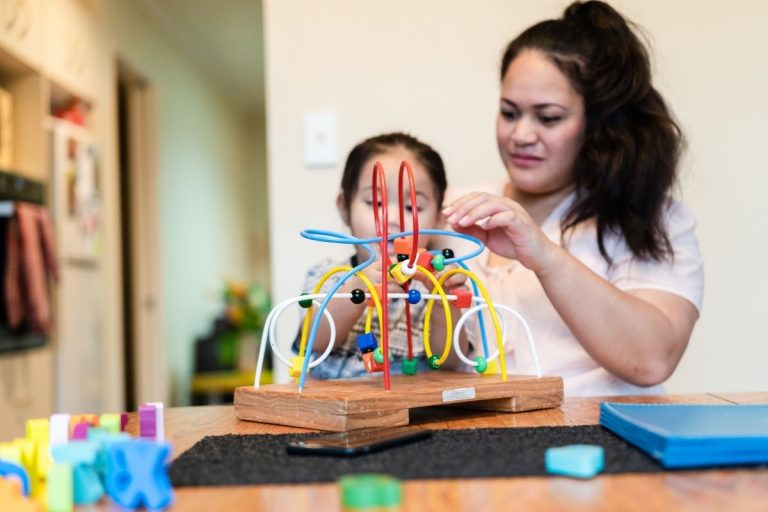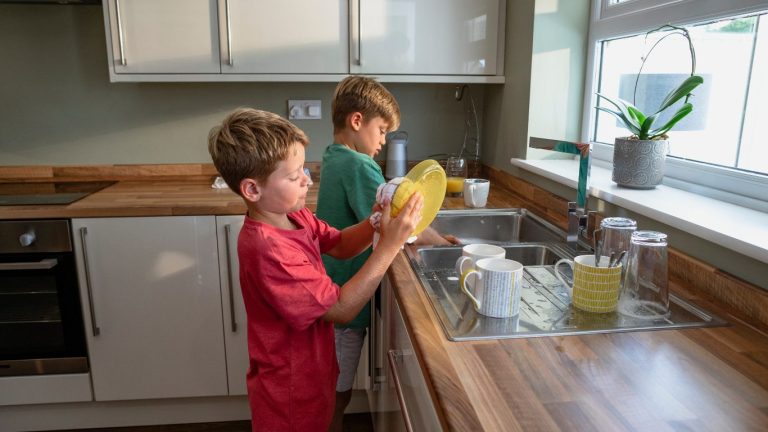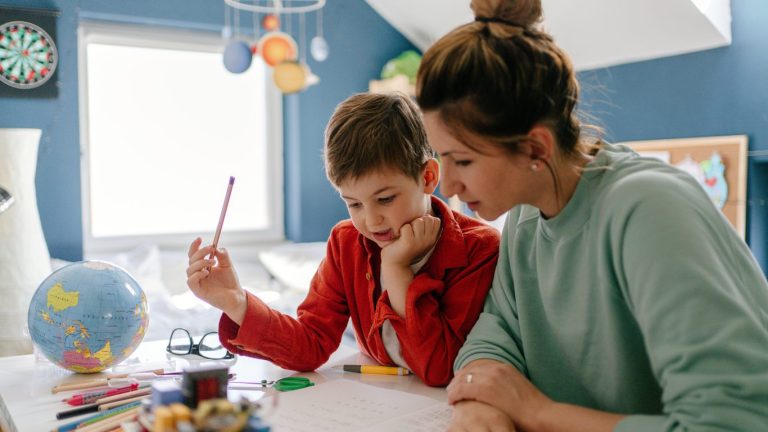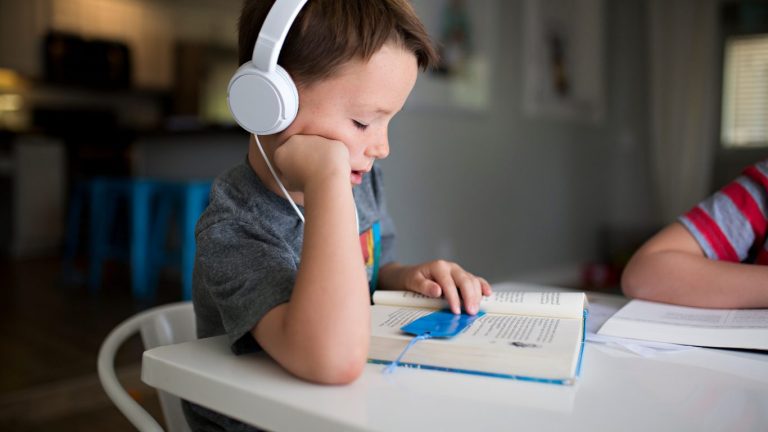At Kohanga Reo all education and instruction is delivered in te reo maori (Maori language). Learn more about Kohanga Reo and how it works in our article.
What is Kohanga Reo?
Kohanga Reo is an early childhood education and care (ECE) centre where all education and instruction is delivered in te reo maori (Maori language). At Kohanga Reo mokopuna (children) are totally immersed in Maori language and tikanga (culture) from birth through to the age of six. This means that the only language spoken at Kohanga Reo is Maori.
Kohanga reo is a whanau (family) dependent programme, parents and whanau are closely involved with children’s’ development and learning. They are also responsible for the management, operation and everyday decision making for the Kohanga Reo. Parents are also encouraged to take part in the daily programme provided by Kohanga reo.
The translation of the words Kohanga Reo is ‘language nest’. This translation relates directly to one of the key objectives of the Kohanga Reo movement – the retention of the Maori language. Kohanga Reo totally immerses children in Maori language and culture in an effort to promote learning within a context/situation that is relevant to the children and which draws on Maori styles of learning and teaching.
What is the aim of Kohanga Reo for its children?
The three fundamental aims of Kohanga for its children are that
- Children will learn the Maori language and culture, including the spiritual dimension, through immersion;
- Language and cultural learning will be fostered and supported for all members of the whänau o te Köhanga Reo;
- Members of the Köhanga Reo will learn within the whänau setting, a range of skills that supports the philosophy
How does it work?
There are several levels on which Kohanga operate.
Whanau
Whanau and parents are ultimately responsible for the operation of Kohanga Reo.
The whanau may consist of the parents of the children attending, elders and the community involved on the Kohanga.
The whanau is responsible for:
- the employment of the staff working in the Kohanga reo
- the health and safety of the children attending the Kohanga reo
- the early childhood education programme for the children attending
- the management of Kohanga reo property and finances.
Some whanau organise themselves to administer and manage more than one Kohanga reo. For example, one whanau manages both a senior (children over two years old) and junior (under two years) Kohanga reo that operate as separate Kohanga reo in the same complex.
Parents are also expected to play a part in the day to day delivery of the mokopuna programmes. The intention is for parents to learn with their children.
The reason for whanau involvement on such a large scale is
- to ensure children are supported,
- to share workload and responsibility
- to ensure everyone is learning about te Kohanga Reo
- to avoid domination of a few over the majority of the whanau.
Te Kohanga Reo National Trust
Kohanga Reo are overseen by an umbrella organisation call Te Kohanga Reo National Trust. It is through this organisation that Kohanga Reo are chartered (see charter).
The Trust’s role is that of kaitiaki (guardian) of Kohanga Reo. Its role is to ensure the quality of education and care provided by Kohanga Reo and to promote and ensure the survival of the Maori language. It does this by providing Kohanga Reo with support and advice in the form of whanau-based learning to Kohanga Reo whanau. It offers Whakapakari Tino Rangatiratanga – a training course for kaiako (teachers), training courses for whanau in te reo Maori (Maori language), computer training, Te Whariki (ECE curriculum) and business administration.
As with other NZ ECE service providers, Kohanga Reo are reviewed by ERO. To search for a review visit www.ero.govt.nz .
What will the children be taught?
As with other ECE services the ECE curriculum Te Whariki is used as a basis for creating learning programmes. This curriculum sets out the learning experiences and goals for children before they reach school age. It also outlines learning outcomes for Kohanga Reo.
The early childhood curriculum is founded on four principles:
- Whakamana (empowerment);
- Kotahitanga (holistic development);
- Whänau Tangata (family and community); and
- Ngä Hononga (relationships).
It is obvious that a large amount of what the children will learn will be Maori language and culture.
Who teaches at Kohanga Reo?
Parents and whanau play a large part in the education of children at Kohanga Reo. Aside from them The Education (Early Childhood Centres) Regulations 1990 (amended in 1991, 1992, and 1993) determines that at least one person who is employed to work with children in the Kohanga Reo be:
…attested, that is, determined by the district and local TRU (Tino Rangatiratanga Unit), the Trust, NZQA and Ministry of Education as a suitable person to work in an early childhood education centre and be both fluent in te reo Maori and knowledgeable about tikanga Maori.
There are several ways a person can learn to work in Kohanga Reo including attestation and training on a course.
Attestation
This is a process which ensures potential staff are able to provide appropriate teaching based on their fluency in the Maori language and their knowledge of tikanga (culture). The process is undertaken by both Te Kohanga Reo National Trust and the New Zealand Qualifications Authority.
NZQA-approved training
There are three relevant qualifications a person can undertake to complete that will enable them to teach at Kohanga Reo. These courses range from one to three years in duration. They are Te Ara Tuatahi, Te Ara Tuarua and Whakapakari Tino Rangatiratanga.
What will it cost me?
Kohanga Reo have a whanau contribution system which makes providing cost guidelines difficult. The contribution expected of a whanau depends on the needs of the whanau . The contribution can be koha (gift), donations for food and/or paying fees.
What else should I know?
It is important to understand that although the primary aim of Kohanga Reo is to totally immerse children in order that they learn the Mäori language and culture, including the spiritual dimension, the Education Review Office (ERO) makes us aware of some flaws in this ideal.
In ERO’s report ‘What Counts as Quality in Kohanga Reo” updated February 2005, an inability to find teachers fluent in, and therefore able to teach in, Maori was noted. This has implications where the total immersion of children in the Maori language is concerned.
Sixty-four percent of Kohanga reo were delivering their programmes entirely through te reo Maori. These Kohanga reo had good programmes in place to foster Maori language and cultural growth in children and to encourage children to communicate in Maori.
While they were committed to delivering programmes through te reo Maori, 27 percent of Kohanga reo were unable to do so consistently because of a lack of Maori language expertise within their Kohanga reo. Most of these whanau need to develop better strategies for promoting Maori language growth in children and in whanau members working with the children.
In nine percent of Kohanga reo, little or no Maori language was spoken by whanau and children. Where Maori was spoken by whanau it tended to be managerial rather than instructional. In almost all these Kohanga reo, children lacked stimulation and were often bored.
Glossary of Maori terms used in this article
kaiako – teachers
kaitiaki – guardian
koha – gift
Kohanga Reo – ‘language nest’
mokopuna – children
te reo maori – Maori language
tikanga – culture
whanau – family
Helpful Kohanga Websites






I’m about to move to Central Otago with our son who will be 1 by the time we move and I was wondering if there were any kohanga reo early learning centres around?
Hi Bex, we asked our Facebook crew if they knew of anything that would suit your family. It might be more useful if we knew exactly where in Central you were moving to? https://www.facebook.com/kiwifamilies/posts/820472704678026
Kind regards, Sally
What do you do when you know the kohanga is ripping off funds?Who would do an audit and check up on it?
So Many people get confused between Kohanga reo and ece. Some people also think that its an early childcare centre where they speak fluent te reo maori. It is not, The programmes and planning are totally different. Where Kohangareo is kaupapa led ECE is more free play self exploring etc when doing planning it is usually based around a topic. e.g Tane Mahuta so therefore we provide the tools and resources needed for the mokopuna to learn and understand that Atua. This is where ERO are getting it wrong because they too are ticking boxes and expecting the Kohangareo system… Read more »
It would also be interesting to know where you got your information on and do you have a knowledge of playcentre and how it runs because I am very interested to see how you perceive their system to be… js
In your words “the ECE curriculum Te Whariki ” is not quite right as – the concept of Te Whariki came from Te Kohanga Reo so it is not an ECE curriculum. Te Whariki was originally written by Tilly Reedy who wrote it on behalf of the Te Kohanga Reo movement and was offered a million dollars or some outrageous amount for it as the NZ Govt saw how beneficial the concepts of mana atua, mana tangata, mana reo, mana whenua and mana te aoturoa are. Therefore it is a TKR curriculum that the NZ Government yet again ripped off… Read more »
I believe that
Hi there, thanks for the information!
I am looking for a full Maori Kohanga in Auckland and was wondering if there was a “top 10” of Maori schools or something similar I could have a look at to ensure I enroll my boy in the right place.
I hope you can help as reading all the ERO reports and trying to distill it out of that info is going to be a bit of a mission 🙂
Thanks in advance for your support and suggestions!
Hi Boyard,
I’m afraid that there’s no such list – the best thing to do is go and visit the Kohanga near you or that you are considering and get a feel for them. Different Kohanga will be better suited to your needs / the personality of your child and visiting them will help decide this for you. Talking to other parents can also give you really useful insight.
Hope that helps!
Rochelle
Thanks Rochelle… No magic list then 🙂
WIll do!
bo
Nope, sorry 😉 Good luck with your search!!
Rochelle
Do I need to be able to speak fluent Maori for my daughter to be enrolled at a Kohanga Reo centre?
Hi jviv,
Different centres have different policies but generally, you just need to be willing to use Te Reo with your children at home. You’d be best to chat you your local Kohanga or contact the Kohanga association: http://www.kohanga.ac.nz
Hope that helps!
No you dont have to speak fluent but it is encouraged that you learn alongside your chil 😀
ka pai rawa atu to mahi
Kia ora Tiwhakaawe!